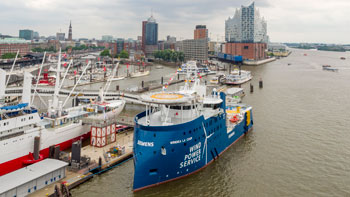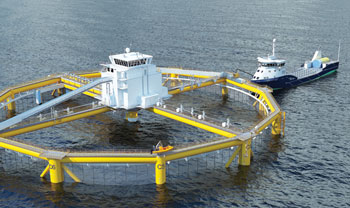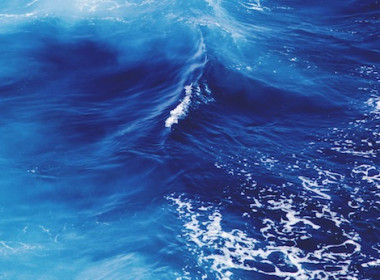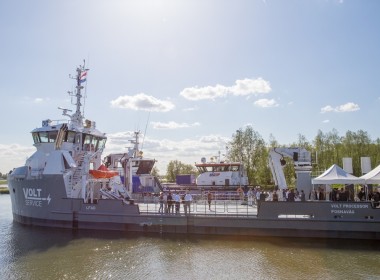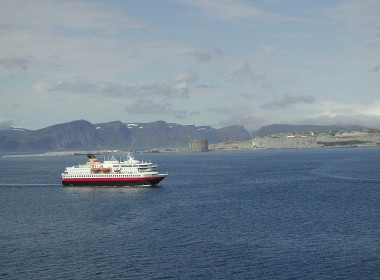EDITORIAL: Fish farm service vessels – Bigger and better
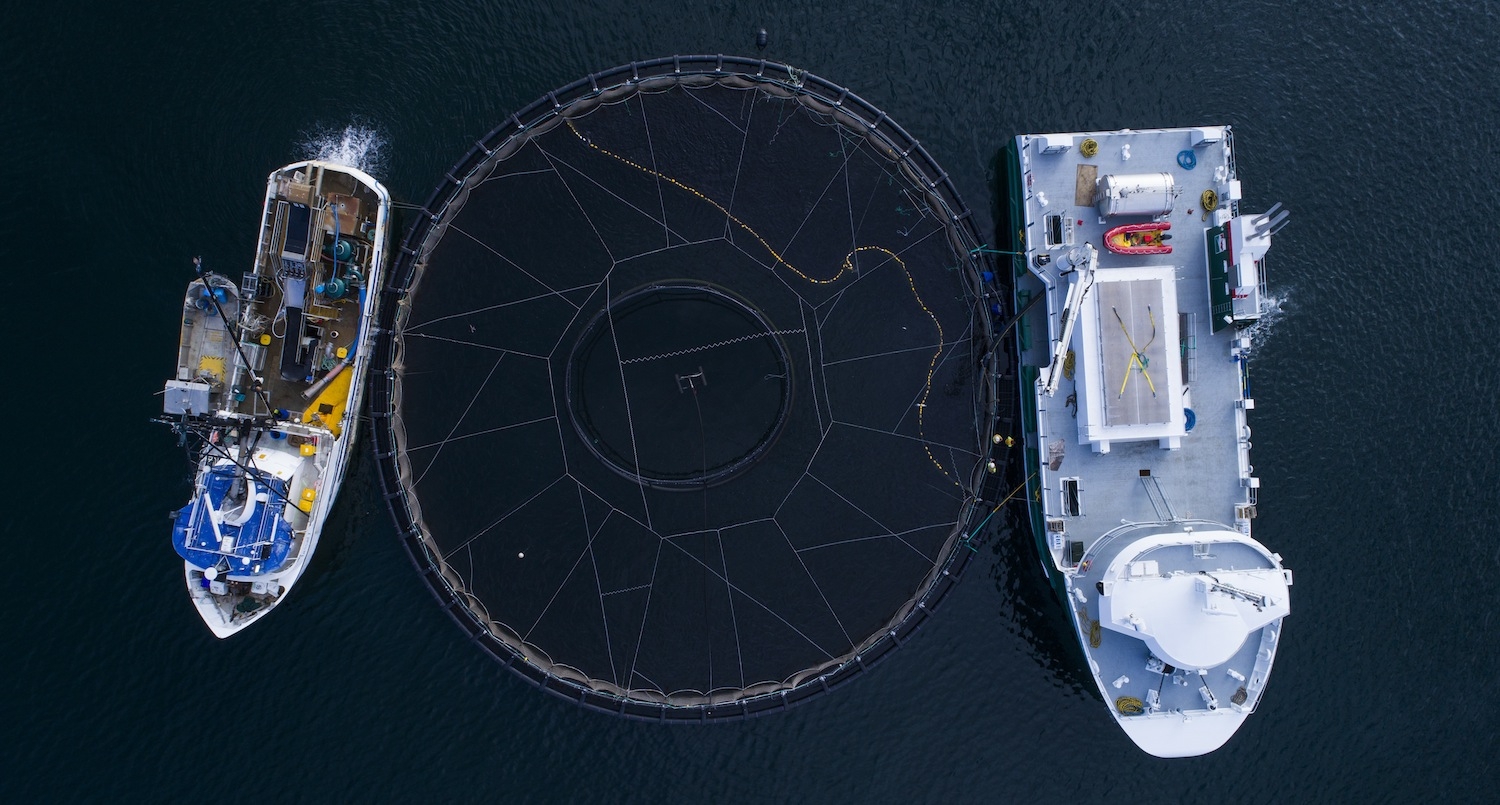
As the population of our planet continues to grow inexorably, the demand for high quality protein to feed it is expanding at a similar rate. One of the most effective ways of supplying that demand is, and will continue to be, through ever improving aquaculture.
As with farming, fishing, forestry, mining and oil and gas recovery, however, the world’s oversupply of deep green environmental zealots, continue to proclaim, loud and long, that aquaculture or fish farming is a terrible thing. If their prognostications were in any way accurate, life as we know it will soon cease to exist thanks to any or all of the above activities. Of course, if we ceased any of them for too long, life would cease to exist anyway. We would all starve or freeze to death.
A tough choice, perhaps, but I think most of us would prefer the continuing exploitation of our natural resources but to do so sustainably. A little difficult in the cases of mining and oil and gas but even they can be minimised by wasting less and conducting more recycling. We are, fortunately, becoming ever better at the sustainable exploitation of our planet’s other resources. Human beings have successfully done so throughout our known history.
So, despite the irrational, illogical and often dishonest bleating of the inner-urban, “champagne socialist” Greens, those of us who employ, feed, clothe, warm, water and transport the remainder of humanity are becoming ever better at doing so sustainably. No rational person wants to foul his or her nest whether deliberately or not.
That applies equally to fish farmers as to everyone else. While aquaculture has been practiced for millennia, modern fish farming has only been with us for about three decades. As the world realised that populations of people were rapidly increasing simultaneously with rapidly declining populations of wild caught fish, it awakened to the reality that it had to develop more sustainable ways of supplying those people with vital protein.
Pro-active fish farmers
The fish farming industry grew at an enormous rate from the late 70s to supply that still rapidly growing demand. That growth, inevitably, involved some undesirable and unsustainable practices. The industry soon became aware of those. Partly that was because of the self-harm such practices caused it and partly because the governments that regulate the industry demanded improvement.
While there is no doubt that many of those bad practices continue, there is equally no doubt that the more enlightened members of the industry have seen the light. They are being pro-active in their own best interests. Readers of this magazine will have noticed a steady trend towards larger fish farms, or pens, located further offshore. This has necessitated a similar increase in the size and power of the vessels that service the fish farms. The pens, also, are being moved more frequently and further. We have been predicting this trend for twenty years. It is good to learn that it is really happening.
I spoke recently with my friend and colleague Hagen Stehr. Hagen writes a column for Work Boat World’s sister magazine Ausmarine. He also happens to be one of Australia’s leading and largest scale fish farmers. He specialises in tuna ranching and kingfish growing. He knows a lot about the industry and, like most successful businessmen, is very far-sighted.
About sixteen years ago Hagen spoke at one of our Ausmarine conferences in Fremantle. He predicted a future for fish farming that would be rather like the offshore oil and gas industry. He said it would rely on bigger, more powerful and more versatile vessels serving bigger, stronger, more seaworthy and more moveable infrastructure, i.e. pens. The pens would be moved more frequently and further.
Those developments are for reasons of economies of scale, sustainability, disease prevention and seafood quality. In other words, what is good for the fish farmers is good for seafood consumers and also for the environment. Most importantly, such developments are happening now in most developed countries.
Hagen has agreed to speak again to give us an update on his thoughts on this subject at the Work Boat World Conference we are organising at the Asia Pacific Maritime exhibition run by Reed Exhibitions in Singapore in March next year. His ideas were exceptionally prescient, indeed revolutionary, sixteen years ago. They are certain to be just as far-sighted next March.
It is a very fast developing sector with plenty happening to benefit both humanity and the environment.


